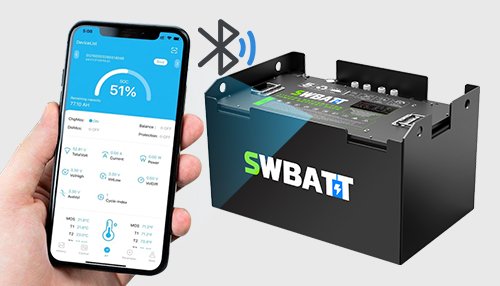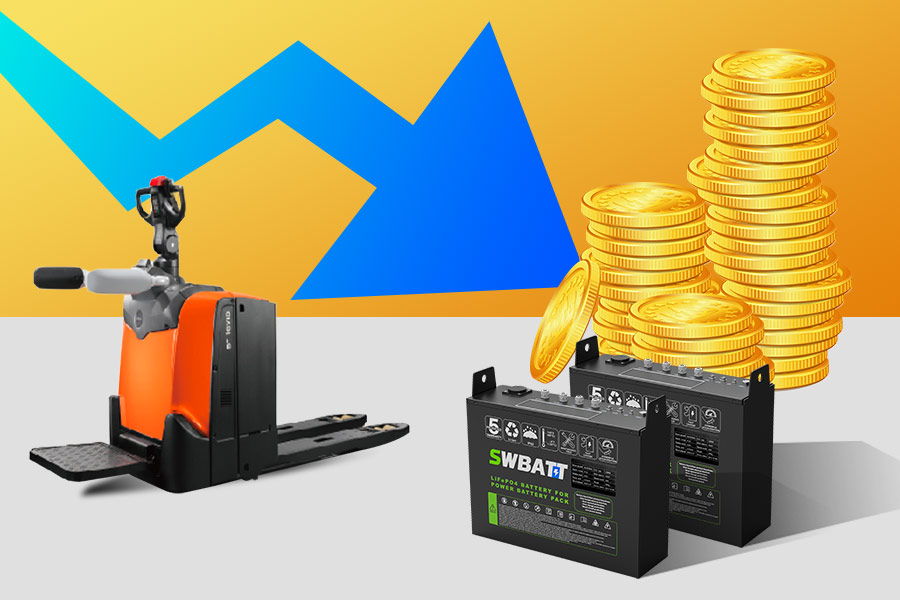フォークリフト・バッテリーの充電時間は?電動フォークリフトに電力を供給する際に考慮すべき最も重要な要素の1つは、バッテリーの充電にかかる時間です。効率的なバッテリー充電は、貴社のフリートの稼働時間を維持し、運用コストに影響を与えます。このブログ記事では、フォークリフト・バッテリーの充電時間に影響する要因を探り、バッテリーの性能を最適化するための実践的なヒントを提供します。
フォークリフト・バッテリーの充電時間は何に影響されるのか?
Table of Contents
Toggleバッテリーの種類、充電器の仕様、バッテリー容量、使用する充電方法など、電動フォークリフト・バッテリーの充電時間に影響する要因を理解することは、単に重要なだけではありません。それは力を与えます。この知識は、貴社がオペレーションをコントロールし、バッテリー効率を最大化し、ダウンタイムを最小化することを可能にします。
バッテリーの種類と化学: フォークリフトが使用するバッテリーのタイプは、充電にかかる時間に大きな役割を果たします。ほとんどの電動フォークリフトは鉛蓄電池かリチウムイオンバッテリーを使用しています。
- 鉛蓄電池: これら は従来の選択肢であり、通常、フル充電に6~8時間と、より長い充電時間を必要とする。 鉛蓄電池 また、定期的なメンテナンスも必要で、これが充電効率にさらに影響することもある。
リチウムイオン電池: 一方、リチウムイオンバッテリーはその充電時間の速さから人気を集めています。リチウムイオンフォークリフトバッテリーのフル充電には通常2~4時間かかり、[モデルXやモデルY]のような急速充電モデルでは1時間程度で完了するものもあります。最近の充電器は バッテリーサイズに適応し、効率的な充電サイクルを保証します。このような適応性により、あなたの機器は、あなたに対してではなく、あなたと共に働くように設計されており、その効率性に対する信頼性を高めてくれます。
タイプ フォークリフト・バッテリーに使用される充電器は、単に重要なだけではありません。それは貴社の業務に対する重要な投資です。スマート充電技術などの高効率充電器は、充電時間を大幅に短縮することができ、あなたのオペレーションをより効率的でコスト効果の高いものにします。この決定は、貴社の業務において重要なウェイトを占めます。
充電方法: フォークリフトは 請求される の2つの方法がある:機会充電とフル充電である。
- 機会充電: この方法では、休憩時間やシフトの合間にバッテリーを充電することになる。 フォークリフトの全ダウンタイム.通常、より短時間で済む と比べて をフル充電しても、100% バッテリー容量に達しない場合があります。
- トータルチャージ: 最適なパフォーマンスを得るには、フル充電が必要です。 をお勧めします。.しかし、この方法は、特に鉛バッテリーの場合、より多くの時間を必要とする。リチウムイオンバッテリーは急速充電に対応できるため、フォークリフトが一日中頻繁に使用される環境には理想的です。
充電時間の比較:鉛酸フォークリフトバッテリーとリチウムイオンフォークリフトバッテリーの比較
充電時間はフォークリフトに使用されているバッテリーの種類によって大きく異なります。以下は、その詳細です。 鉛蓄電池と ライフPO4 フォークリフト用バッテリー 充電時間の点で比較する:
1.鉛蓄電池:
鉛バッテリーはフォークリフト用の伝統的な電源であり、その充電時間は一般にリチウムイオンバッテリーよりも長い。平均すると 鉛蓄電池 必要 6~8時間 フル充電に必要な時間は、バッテリーの容量(アンペア時、Ahで測定)により異なります。充電に必要な時間は、充電器の効率や周囲温度などの要因によってさらに影響を受けます。複数のシフトが必要な環境では、フォークリフトはしばしば一晩中フル充電する必要があり、これはピーク時の稼働率を低下させる可能性があります。
- 充電時間: 6~8時間
- バッテリーのメンテナンス: 定期的なメンテナンスが必要で、水量のチェック、端子の清掃、バッテリーの過充電防止などが含まれる。
- 使用効率: 充電時間が長いため、フォークリフトのダウンタイムは、特にバッテリーが一日中頻繁に放電している場合には、大きなものとなる。
2.リチウムイオン電池:
対照的に、リチウムイオンバッテリーは充電時間が速いため、効率が大幅に向上する。先進的なバッテリー化学のおかげだ、 リチウムイオン電池 で充電できる。 2~4時間場合によっては、急速充電モデルはわずかな時間で充電できる。 1時間.この効率性により、迅速なターンアラウンドタイムと生産性の向上が可能になり、業務に革命をもたらす可能性があります。また、リチウムイオンバッテリーは「メモリー効果」(部分充電後にバッテリーの容量が減少する現象)を受けないため、充電サイクルを最適化することができます。
- 充電時間: 2~4時間 (急速充電モデルは1時間で充電完了)
そのとき リチウムイオンバッテリーはメンテナンスの面で優れている。リチウムイオンバッテリーのメンテナンスは最低限で済み、定期的な水の点検や端子の洗浄が不要です。このメンテナンスの削減は、時間を節約するだけでなく、運転コストを削減し、リチウムイオンバッテリーをフォークリフト運転のための費用効果の高い選択にしています。.充電時間の短縮はフォークリフトのダウンタイムの短縮につながり、迅速なターンアラウンドを必要とする業務では大きな利点となります。このため、リチウムイオンバッテリーは、生産性を最大化することが最優先の業務に適した選択肢となっています。

1.鉛蓄電池:
一方 鉛蓄電池 は、一般的に初期費用は安いものの、メンテナンスにかかる長期費用が高く、寿命も短い。バッテリーを効率的に機能させるには、水量のチェックや端子の清掃など、定期的なメンテナンスが必要です。鉛蓄電池の寿命は一般的に 1,000~1,500回の充電サイクルこれは は、リチウムイオンバッテリーよりも頻繁に交換しなければならない。
- 維持費: 高い(定期的なメンテナンスが必要なため)
- バッテリーの寿命: 約 1,000~1,500サイクル
- 総所有コスト: 頻繁な交換とメンテナンスのため、経年劣化が大きい。
2.リチウムイオン電池:
しかし リチウムイオン電池 付属 リチウムイオンバッテリーは初期投資が高いが、寿命が長くメンテナンスの必要性が少ないため、長期的なコストは低くなる。リチウムイオンバッテリーの寿命は 3,000~5,000回の充電サイクルおよそ 2~3倍長い 鉛蓄電池よりも。さらに リチウムイオン電池 定期的なメンテナンスが不要なため、運用コストやダウンタイムの削減につながる。
- 維持費: 低い(水のチェックなど定期的なメンテナンスが不要)
- バッテリーの寿命: 約 3,000~5,000サイクル
- 総所有コスト: 交換回数が少なく、メンテナンスも少ないため、経年劣化が少ない

リチウムイオンバッテリーがフォークリフトの未来である理由
充電時間、メンテナンス、そして全体的なコスト効率という点で、リチウムイオンバッテリーは鉛バッテリーよりも明らかに優れているため、フォークリフト業界では急速に採用が進んでいます。このリチウムイオン技術への流れは、単なる変化ではなく、企業がダウンタイムを減らし、業務の全体的な効率を高めようと努力するための動きです。
リチウムイオンフォークリフト・バッテリーは、その充電時間の短さ、寿命の長さ、最小限のメンテナンスにより、明確な競争優位性を提供します。さらに、持続可能性とエネルギー効率への注目の高まりの中で、リチウムイオンバッテリーは、今後数年間、フォークリフト・フリートの標準になるのに十分な位置にあります。
まとめると、フォークリフト・バッテリーの充電時間は運転効率とコストに大きく影響します。鉛バッテリーはまだ標準的かもしれませんが、メンテナンス要件が高く、充電時間が長くなります。対照的に、リチウムイオンバッテリーは、より速い充電、より高い効率、より低い長期コストを提供し、潜在的に大きな節約につながります。リチウムイオン技術に移行することで、企業は競争力を維持し、ダウンタイムを削減し、全体的なコスト効率を向上させることができます。
で スワット当社は高性能リチウムイオンフォークリフトバッテリーのエキスパートです。当社のソリューションは、優れた充電時間、長寿命、最小限のメンテナンスを実現します。フォークリフトをアップグレードする準備が整いましたら、今すぐ当社にご連絡ください。




